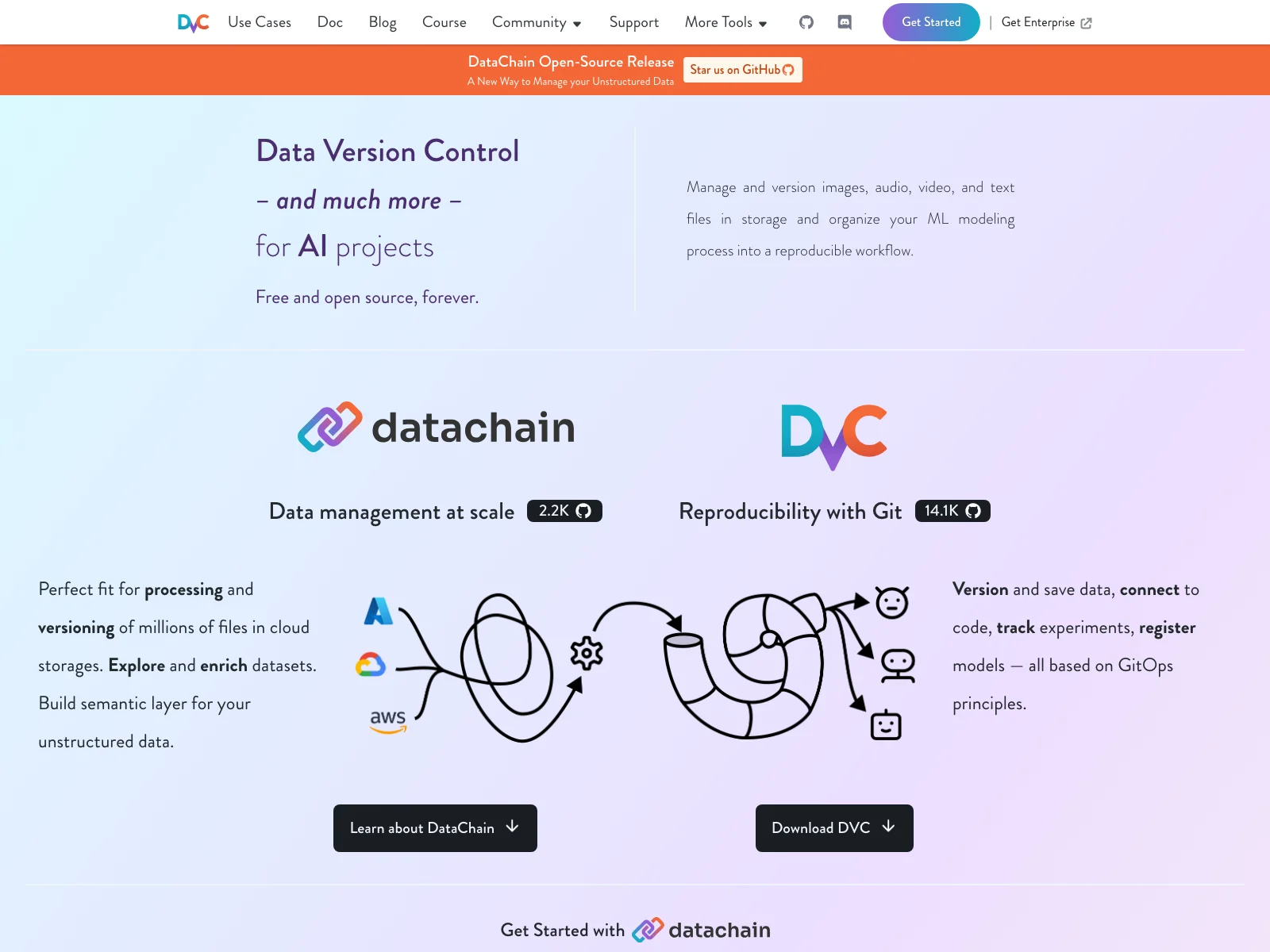Introduction to Data Version Control (DVC)
Data Version Control, commonly known as DVC, is a remarkable free and open-source tool that has been making waves in the realm of AI projects. It offers a novel approach to handling unstructured data, which is a crucial aspect of many modern AI endeavors.
Overview
DVC provides a comprehensive set of features that allow users to manage and version various types of files such as images, audio, video, and text. This means that you can keep a tight control over your data as it evolves throughout the development process of your AI projects. It's especially well-suited for dealing with the large datasets that are becoming increasingly common in the field. For instance, it can effortlessly handle the processing and versioning of millions of files stored in cloud storages, making it a perfect fit for big data scenarios in AI.
Core Features
One of the standout features of DVC is its ability to build semantic layers for unstructured data. This enables users to better understand and work with their data by adding meaningful context. Additionally, it allows for versioning and saving data, connecting it to code, and tracking experiments, all while adhering to the GitOps principles. This seamless integration with Git makes it familiar and accessible to many developers who are already accustomed to using Git for version control.
Another great aspect is the ability to create datasets from queries without the need to copy data. This not only saves time but also ensures that your data sources remain intact. You can also build pipelines that connect your versioned datasets, code, and models together, facilitating effective experiment tracking in the GitOps way.
Basic Usage
Getting started with DVC is relatively straightforward. You can download it using various package managers like pip, conda, or brew. For those using VS Code, there's also a handy extension available. Once installed, you can begin to configure the steps according to your specific project requirements. You can connect your storage to the repo, keeping your large data and model files alongside the code and sharing them via your cloud storage. This allows for easy collaboration among team members.
In comparison to some existing data management tools in the AI space, DVC stands out for its simplicity and effectiveness. While some tools might offer complex interfaces and workflows that can be overwhelming for newcomers, DVC provides a clear and intuitive way to manage your data. It empowers users from startups to Fortune 500 companies to handle their unstructured data with ease, ensuring reproducibility and efficient workflows in their AI projects.
Overall, Data Version Control (DVC) is an invaluable tool for anyone involved in AI projects that deal with unstructured data, offering a streamlined and efficient way to manage and version data, build semantic layers, and track experiments.
